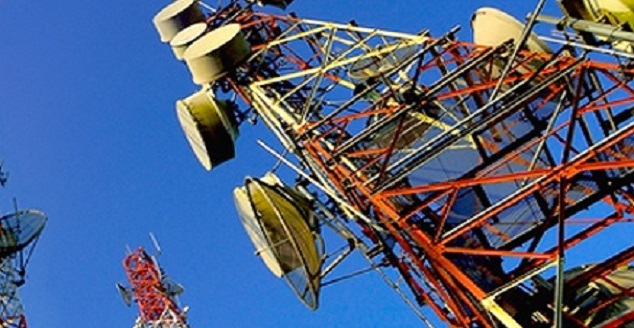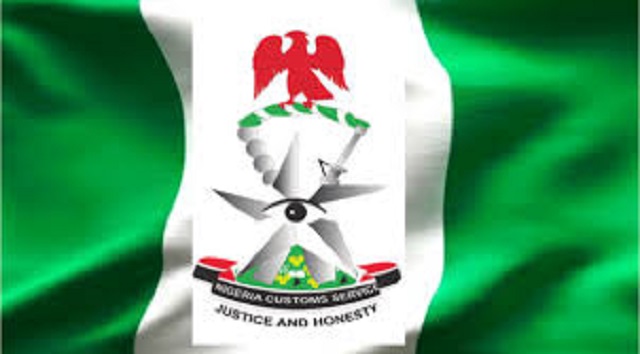General News
Unlicensed & Licensed Bands for Wireless Networks Expanding SATCOM Role in Booming Market

Andrew Aroh
5G brings three new aspects to the table: greater speed [to move more data]; Lower latency [to be more responsive]; higher capacity (the ability to connect a lot more smart devices and sensor at once).

There will be slow but responsive 5G.
There will be also fast 5G with limited coverage.
Spectrum-wise 5G runs in three kinds of airwaves: Low–Frequency bands networks; Mid–Frequency bands networks; and high–Frequency bands networks.
Low –Frequency bands 5G networks use existing cellular band and Wi-Fi band [5 GHz] by taking advantage of more flexible encoding using OFDM [better spectral efficiency, data reliability and effective range].The resulting bigger channel sizes thus created achieves speeds 25 to 50 percent better than 4G [2Gbps].
This yields about 3.5Gbps which is better than existing 54 Mbps for Wi-Fi.
These networks can cover the same distances using existing cellular networks and generally won’t need additional cell sites/Access points (AP).
Thus, even with existing macro cells 5G will be able to boost capacity by four times better than current systems by leveraging wide bandwidths and advanced antenna technologies [Multi beam with massive MIMO].
The goal is to have far higher speeds available and far higher capacity per sector, at far lower latency than 4G [20-30ms].
The standards bodies involved are aiming at 20Gbps speeds and 1ms Latency, at which point very interesting things begin to happen.
The first applications for 5G includes fixed wireless access for homes and enhanced mobile broadband [eMBB] services using new 5G phones, tablets, wireless access modems and HOTSPOTS.
High –speed wireless links tend to be deployed in conjunction with wireless access technologies, namely:
- LMDS/WLL base/earth stations
- Mobile Voice and Data base/earth stations
- Hotspot [Wi-Fi] base/earth stations
Hotspot access network is one in which wireless access is enabled by 802.11-based Wi-Fi technology.
This allows very high–speed roamable access to: Portable computers, PDAs, video games, services terminals of various types [e.g. IPAD], warehouse/industrial equipment, office computers, hand/personal wireless phones i.e. GMPCS (Global Mobile Personal Communications by Satellite).
Hotspots have been vigorously deployed to primarily serve the travelling business community with the current applications being corporate LAN access.
Hotels, airports, conferences centers, restaurant centers and shopping malls are the current deployment targets intended to serve these markets.
The low cost of the user terminals coupled with the pseudo-mobility of this technology will see it in wide spread HOME INDOOR and OUTDOOR deployments with virtually unlimited applications and services.
This technology has found its way into a merger of sorts with the existing mobile voice networks, providing much sort after integrated mobile voice & data networks with widespread ubiquitous coverage provided via satellite.
Larger Hotspots are constructed using a number of short range Access Points [APs] operating in unlicensed band allocations at 2.4, 5.2 or 5.8 GHz.
Each AP can provide access rates of 11Mbps or 54Mbps using highly standardization 802. 11a/b/g/n using COFDM technology for large and scalable Networks.
The Hotspots within a given metropolitan networks can then be linked using wire line/cable or wireless technologies.
Like other cellular networks, 5G networks use a system of Cell Sites/APs that divide their territory into sectors and send encoded data [using OFDM] through radio waves. Each site must be connected to a network backbone. High speed wireless links operating above 50Mbps can be operated in unlicensed bands or licensed bands depending upon the services and perceived interference immunity of the links, whether through a wired or wireless backhaul connection.
- When considering, wireless inter Hotspot, links, the use of unlicensed technology is attractive since the entire 802.11 user access layer is unlicensed.
- However, once aggregation in the Hotspot has occurred, the interference prone nature of the unlicensed bands makes them unstable choices for backhaul except for bands like 24GHz and 60GHz in which there is a high degree of natural or regulated interference immunity.
- As a result, the aggregation of the data from these access cells tend to be focused on high-speed, highly reliable and predictable links constructed using fiber [If available] or licensed high-speed wireless using satellite technology or microwave links. Frequencies such as 18, 23, 26 and 28 GHz are often candidates for these licensed links. Care must be taken when considering unlicensed operation in the 5.8GHz band since this band is highly prone to interference .The 24 GHZ allocation does allow only highly directive PTP links and 60 GHz offers very highly natural attenuation against undesired interferences. Ultimately, the best reliability and predictability are offered by licensed links.
- 5G over satellite catches on much faster than unexpected:
- Satellite must be inserted into the global virtualized architecture
- Industrial companies have demonstrated the use of satellite communications capabilities integrated and interoperable in the 5G environment, achieve interoperability of networks and demonstrate the functionality, performance and benefits brought by the use of satellite. The first phase leveraged existing space and ground segment assets and new development enables the high efficiency, high performance, virtualization and multi service capability paramount for the main 5G use cases.
- These activities drives the full integration of satellite in 5G through open and standard solutions, facilitated primarily through 3GPP standardization.
SATELLITE PROVIDERS LOOK TO EXPAND ROLE IN BOOMING Wi-Fi MARKET:
- Increasing demand for broadband internet access anytime, anywhere is what is fueling the growth of Wifi services.
- Satellite services providers are moving into the booming market for wireless communications by offering satellite links for Wi-Fi [Short for Wireless Fidelity] hot-spots.
- The market is substantial as Wi-Fi hot-spots continue to pop up in office buildings and other public and private venues around the world. Indeed, both satellite and terrestrial service providers are competing to offer the services.
- Just as satellite backhaul has helped expand the reach of mobile telephone networks, it can also expand Wi-Fi access.
- Rural markets in developed countries, such as France, as well as those in less developed area in Africa, are being brought across the digital divide because of such access.
- A particularly interesting satellite application in the U.S.A is to connect temporary Wi-Fi hot-spots used for sporting events and natural disaster relief.
Broadband wireless software and network providers have found that satellite networking can work better than terrestrial lines to connect wide area Wi-Fi hot-spot networks.
Installing a nationwide-network with terrestrial links [Lines] involves complexities that can include the use of multiple vendors, long lead lines, and multiple points of contact for repairs.
Satellite network uses a single vendor.
- A strategic partner and value added reseller can provide an internet portal for truckers with Wi-Fi hot spots at more than 250 truck shops. It can also offer software solutions and a satellite network capable of transmitting data at up to 48 megabits per second.
- When drivers or any other subscribers are in a hot-spot, they have access to a proprietary network that can transmit application data, access the internet and intranets, as well as send and receive-email.
- To enhance cost-effectiveness of its system, service partners can design their networks around hotspot access locations that will be located strategically across the country.
- Wi-fi hotspots provide an excellent avenue for satellite systems to provide broadband access even with traditional-distribution satellites.
Andrew Aroh is President SSPI Nigeria
General News
FG Launches Survey to Encourage Nigerian Digital Firms Spread Across Africa

The Federal Ministry of Industry, Trade and Investment has announced the launch of the Digital Services Survey in a strategic effort to empower Nigerian digital service providers to expand across Africa under the African Continental Free Trade Area (AfCFTA).

The ministry’s Director Press and Public Relations, Dr. Adebayo Thomas in a statement said the aims of the digital services initiative is to map and support the growth of Nigerian digital services throughout the continent and simplify the process for digital businesses to navigate regulatory environments and expand their reach across African markets.
He added that Nigerian digital businesses often face challenges when entering other African markets, including uncertainties around service registration, applicable regulations, and responsible agencies.
Thomas said: “Unlike physical goods, digital services don not always align with existing trade categories. This framework will serve as a common language, ensuring consistent treatment of digital services across borders” and its benefits include unlocking new markets by identifying target African countries for expansion, as Nigeria can focus trade negotiations on opening specific markets for digital services.”
He added, “The framework would also create a Digital Services Repository and for the first time, Nigeria will compile a comprehensive database of digital service providers, their expansion plans, and the challenges they face.
“Furthermore, the framework would strengthen Nigeria’s digital leadership by positioning the country as a proactive leader in Africa’s digital economy, shaping the rules and standards for digital trade.”
General News
Customs Deepens Partnership With Access Bank On System-Wide Integration

Following the successful deployment of its Unified Customs Management System (UCMS), codenamed B’odogwu, the Nigeria Customs Service (NCS) has intensified strategic engagements with key stakeholders to consolidate gains and drive system-wide integration.

In a virtual meeting, the NCS engaged officials of Access Bank to align operational frameworks and deepen collaboration in support of trade facilitation and financial system integration.
The session was led by the Deputy Comptroller-General of Customs in charge of ICT and Modernisation, Kikelomo Adeola.
Also in attendance were the National Public Relations Officer, Assistant Comptroller Abdullahi Maiwada, and Assistant Comptroller Bukola Omoniyi from the ICT/Modernisation Department.
The engagement focused on enhancing synergy between Customs and the financial sector, particularly in streamlining payment systems, boosting data exchange, and ensuring real-time processing of trade-related transactions through the B’odogwu platform.
DCG Adeola reaffirmed the Service’s commitment to seamless stakeholder integration during the post-deployment consolidation phase.
“The deployment of B’odogwu marks a new era in Customs administration,” she said. “Our next priority is to strengthen partnerships with financial institutions like Access Bank to fully unlock the platform’s potential for automation, transparency, and trade efficiency.”
She noted that B’odogwu, developed as an indigenous solution, has already transformed Customs operations by unifying procedures, automating declarations, and enabling real-time transaction monitoring.
“To achieve optimal functionality, all players within the trade value chain must be fully integrated. This engagement with Access Bank is not just timely. It is strategic,” she added.
Responding, Olatunbosun Oladunke, Head of Global Trade at Access Bank, commended the NCS for its forward-thinking digital transformation and assured the bank’s support.
“The B’odogwu platform represents a major leap in digital trade processing. Access Bank is fully aligned with the NCS vision and is committed to ensuring system compatibility, particularly in trade finance and payment automation,” he said.
Also speaking, Olakunle Aderinokun, Head of Media and Public Relations at Access Holdings/Access Bank, emphasized the importance of stakeholder engagement and public awareness.
“Public buy-in is critical to the success of any reform. We will collaborate with the Service to drive awareness of B’odogwu and educate stakeholders on the value it brings to the trading ecosystem,” he stated.
The meeting is part of the NCS’s broader strategy to accelerate its trade modernisation agenda through strategic partnerships, transparency and continuous innovation.
With B’odogwu now operational, the NCS is steadily advancing toward a fully digital, integrated and globally compliant Customs system that supports Nigeria’s economic aspirations.
General News
Moniepoint Launches MonieWorld to Serve UK’s African Diaspora

Moniepoint Inc., one of Nigeria’s leading business payments and banking services platforms, announces the launch of MonieWorld; a new remittance and digital financial services solution – specifically to meet the fragmented, underserved needs of the UK’s African diaspora.

L-R Co-Founder and Chief Technology Officer, Moniepoint Inc, Felix Ike and CEO, Moniepoint GB, Ravi Jakhodia
MonieWorld is launched in the UK by Moniepoint Inc.’s UK subsidiary, Moniepoint GB, headquartered in London. It marks the first time Moniepoint has offered services to customers outside of Africa; a landmark step in its journey to provide financial happiness for underserved populations.
The MonieWorld application, available via the App Store and Google Play, allows UK customers to send money to Nigeria seamlessly – making financial transactions easier.
Remittances are a material contributor to Nigeria’s economy. They supplement foreign direct investment, while supporting household consumption and foreign exchange liquidity. Global remittances to Nigeria rose 9% in 2024 to $20.98 billion, with the UK diaspora contributing c. 50% – helping to grow businesses, support families, and drive economic development.
Moniepoint is the leading financial platform for Nigeria’s vast network of SME businesses and their consumers with its integrated suite of services – digital payments, bank accounts, credit, and management tools. Moniepoint processes 1 billion+ transactions monthly, with total payments volume of over $22 billion. It serves ten million businesses and individuals across Nigeria, driving financial inclusion efforts.
MonieWorld makes it easy for the fast-growing Nigerian diaspora in the UK to send remittances quickly, reliably, and cost-effectively. Transactions usually complete in seconds, competitive exchange rates are adjusted through the day, and no transaction fees are charged. Customers can pay for services via various methods: bank transfers, debit/credit cards, and mobile payment services such as Apple Pay and Google Pay.
Moniepoint’s end-to-end control over the payment process, plus its robust technology infrastructure, guarantees industry-leading reliability for customers – a major competitive advantage for MonieWorld.
Tosin Eniolorunda, Founder and Group CEO of Moniepoint Inc., said: “The launch of MonieWorld is an exciting step on our journey to create financial happiness and support Africa’s entrepreneurial potential. It is a natural addition to our existing suite of solutions and will be hugely valuable for customers. It makes it easy, quick and reliable to send remittances – a critical source of funds for Nigeria’s economy.
“The African diaspora needs a one-stop solution to better meet its financial services needs – and improve on the current fragmented market. I am thrilled Moniepoint is tackling this challenge and can’t wait to announce future additions to the MonieWorld solution. Our expectation is that MonieWorld will enhance financial access for everyone involved, boosting UK-Nigeria bilateral trade and benefiting the global economy.”
Post-launch, MonieWorld will expand to a fully-fledged finance platform purpose-built for the African diaspora, with further solutions added in due course.
The launch of MonieWorld follows significant, sustained growth for Moniepoint, with revenues increasing by over 150% CAGR in recent years.
The Company achieved a milestone Series C funding round in October 2024, backed by Development Partners International, Google’s Africa Investment Fund, Verod Capital, and Lightrock. This was followed by an investment from Visa in January 2025.

 General News2 days ago
General News2 days agoWorld Bank Announces $800m Support for Nigeria’s CCT Initiative

 General News3 days ago
General News3 days agoSanwo-Olu, Others Grace Launch of 50-Bed Hospital in Surulere by Avon Medical

 E-Financial3 days ago
E-Financial3 days agoCBN Pumps in Additional $150m into Forex Market to Safeguard Naira

 E-Financial3 days ago
E-Financial3 days agoSEC Says CBEX, other Unregistered Digital Platforms are Illegal

 Telecom3 days ago
Telecom3 days agoMTN, Meta Partner to Enhance Voice and Video Calling Quality

 Broadcasting3 days ago
Broadcasting3 days agoKONFAM 89.5 FM Hits Airwaves in Lagos Tomorrow

 E-Business3 days ago
E-Business3 days agoSERAP Calls for Withdrawal of Nigeria’s Data Act Amendment

 E-Financial3 days ago
E-Financial3 days agoKenyan CBN Okays Access Bank Full Acquisition Of NBK
















